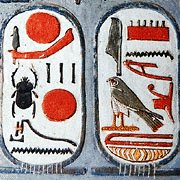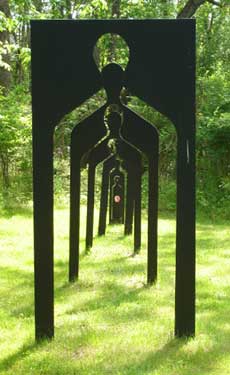 When I meet someone new, I like to ask them if they know what their name means. This is a way of registering the new person’s name in my mind, so it doesn’t slip. It’s also a great conversation starter.
When I meet someone new, I like to ask them if they know what their name means. This is a way of registering the new person’s name in my mind, so it doesn’t slip. It’s also a great conversation starter.
I find it interesting that lots of people, even at the midpoint of life or beyond it, seem never to have paused to ask what their name means. One of my recent workshops was hosted by a thoughtful couple in Maryland. I put my question to them. The wife – Deborah – knew that her name means “honeybee” in Hebrew. She did not know that it is also the name of the priestess of the Great Goddess in very early times; Deborah has the same double meaning (“honeybee” and “priestess”) as Melissa in Greek.
The husband was another Robert. He didn’t know what the name means. It wasn’t hard for me to help him out, since I’ve often had occasion to reflect on what my name means. It’s of Scandinavian origin, though it came down to me through my father’s Scottish line (those Vikings got around). The original meaning of Robert is “bright in fame.” There’s a double edge for me in that. My name says to me: Be ready for the spotlight, and try to stay bright (in all senses) when it’s on you.” I’ve gone through such radical changes in my life that I might have thought of changing my name several times over, to reflect the changes in me and my sense of what matters. But through all my life passages, Robert has felt like the right name for me, However, I won’t tolerate any messing around with it. Call me Bob, and I become dangerous.
On the other hand, I know plenty of Bobs who aren’t Roberts. It’s interesting to notice what’s being reflected or invoked, energetically, if we switch from the formal version of a name to a colloquial or abbreviated one, or do this the other way round. A Bob is not a Robert. A Betsy is not an Elizabeth. Betsy might be the fun and friendly lady next door, the perfect soccer mom and short-order cook for the neighborhood kids. Elizabeth travels with a name that evokes royalty and sacred intent; her name literally means the House of God.
The Egyptians regarded the name (ren) as an aspect of soul, and believed that any assault on a person’s name – for example, by defacing an inscription – was an act of soul mutilation. At the start of my workshops, I ask everyone in the circle to begin by claiming their name and announcing it to the circle in a clear, ringing voice. “If you don’t like the name you’ve been given or are called by others, change it now and we’ll say it back to you.”
What’s in a name, first and last, is you. You want to know what your name means, and what gift or challenge is in that meaning. You want to be sure that the name you are using suits your natural energy and is not like a suit that is two sizes too small and is buttoned up tight, or a pair of shoes that are just too big for you.
Cartouche with the ren nefer (“beautiful name”) and titles of Horemheb, warrior-pharaoh of the XVIII dynasty

